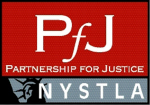 Dealing with Medicare, Medicaid and with ERISA plans can be extremely frustrating for personal injury attorneys. Lawyers that perform services pursuant to a retainer agreement on a contingency basis are forced to spend many months in the post settlement stages fighting liens that generate no revenue to the firm. Some lawyers and firms choose to outsource these problems to lien counsel experts, however in many instances a lawyer is tempted to tell the collection companies like Rawlings to “Take a Hike” on their ERISA lien. The good news is that now NY lawyers can do that when it comes to fully funded ERISA liens!
Dealing with Medicare, Medicaid and with ERISA plans can be extremely frustrating for personal injury attorneys. Lawyers that perform services pursuant to a retainer agreement on a contingency basis are forced to spend many months in the post settlement stages fighting liens that generate no revenue to the firm. Some lawyers and firms choose to outsource these problems to lien counsel experts, however in many instances a lawyer is tempted to tell the collection companies like Rawlings to “Take a Hike” on their ERISA lien. The good news is that now NY lawyers can do that when it comes to fully funded ERISA liens!
On July 31, 2014, The U.S. Court of Appeals, 2nd Circuit issued a decision reversing the Eastern District Court in Wurtz v. The Rawlings Company, that states that New York General Obligation Law 5-335 shall not be pre-empted by the Federal ERISA statute. So as a result, lawyer no longer need to fight with collection companies when it comes to Fully Funded ERISA Plans.
New York State’s GOL 5-335 states that a personal injury settlement presumptively “does not include any compensation for the cost of health care services” or other losses that “are obligated to be paid or reimbursed by a benefit provider/insurer” and that benefit providers/insurers have “no right of subrogation or reimbursement against any such settling party”.
The Federal ERISA statute’s expressly preempts any state law “that relate(s) to any employee benefit plan but not if that state law “regulates insurance” ERISA 514(a)-(b), 29 U.S.C. 1144(a)-(b).
Here, NYS GOL 5-335 absolutely relates to ERISA plans but it is saved from any express and complete preemption because it “regulates insurance”. A State law that “regulates insurance” is saved from express preemption if it fits the definition of “regulates insurance”. Regulate insurance is defined as (1) is it “specifically directed toward entities engaged in insurance” and (2) “substantially affect(s) the risk pooling arrangement between insurer and insured.”
In Wurtz, Plaintiffs were not seeking to enforce or clarify their rights under the terms of their ERISA plan but were using a State Law, GOL 5-335, that regulates insurance to be free from subrogation. In addition, their state claim was not so intertwined with the interpretation of their ERISA plans. Instead, an independent duty arose from GOL 5-335 which prohibits insurers from seeking subrogation or reimbursement from settling parties. The duty is independent because it is unrelated to whatever the ERISA plan states about reimbursement.
It must be noted however that this decision is in conflict with other holdings in the Third, Fourth and Fifth Circuits in similar anti-subrogation matters. How a law firm is going to use NYS GOL Anti-Subrogation laws against lien demands will be something lawyers will need to continue to monitor.…but for now lawyers in New York can tell collection companies to “Go Take a Hike!!!”


Leave a Reply